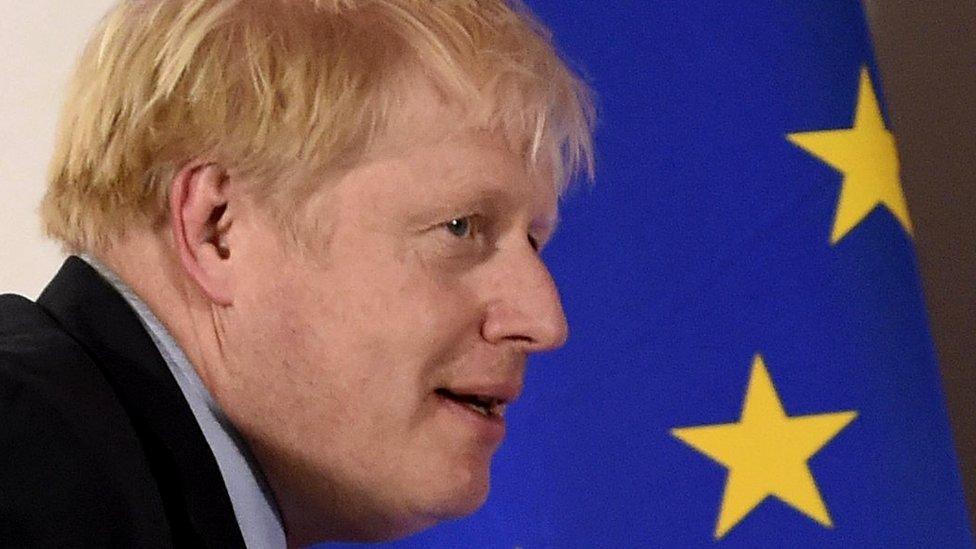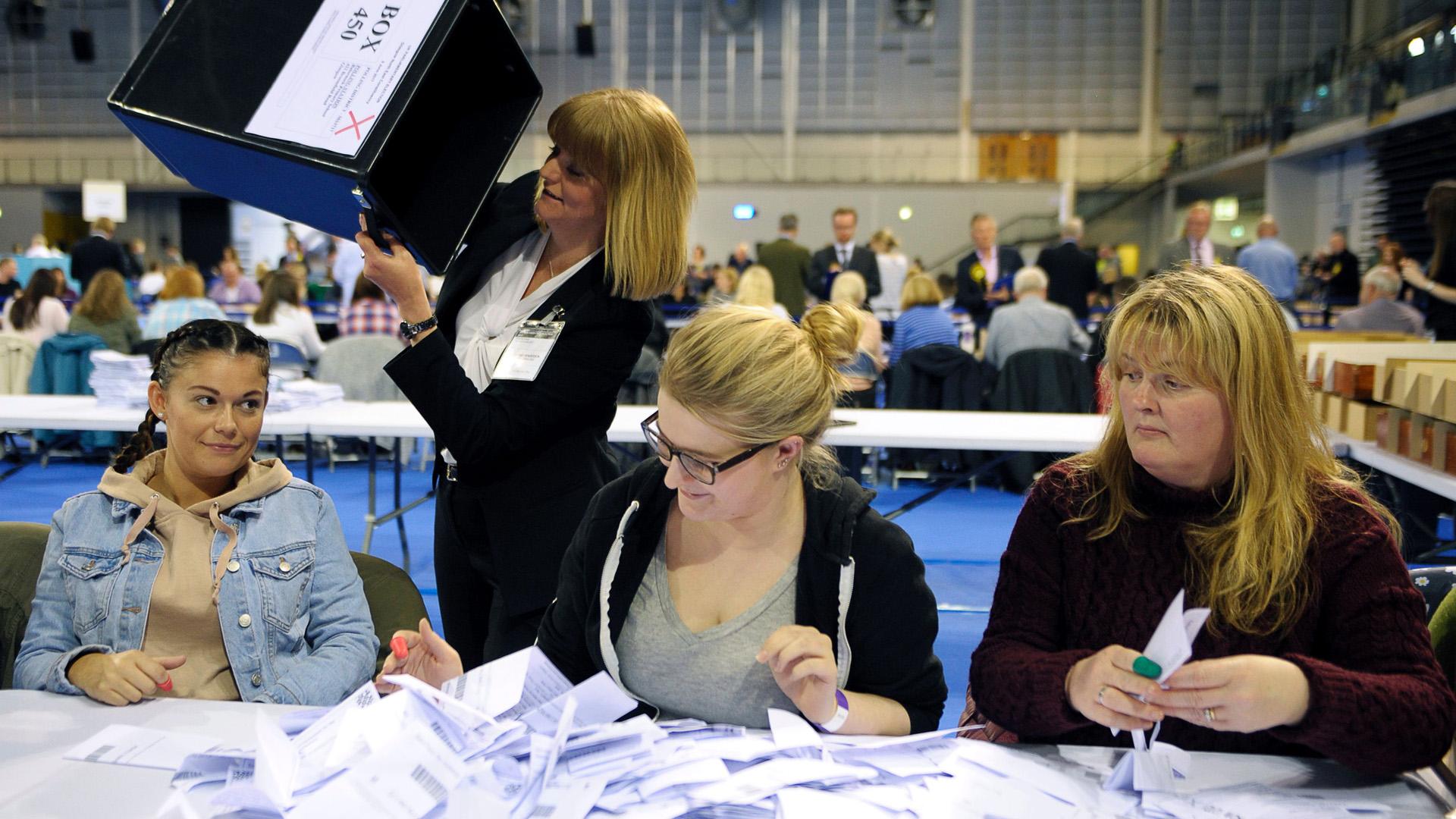Brexit: Is this latest extension the final delay?
- Published

The EU has told Boris Johnson to select a UK candidate for the new European Commission
Boris Johnson has now written to the EU accepting a new Brexit extension until 31 January. But do EU leaders believe this will be the last delay before Brexit?
In his letter to Brussels, the UK prime minister urges the EU to make clear that a further extension beyond January is simply not on offer.
EU leaders, though, are highly unlikely to do as the PM asks.
Why? Well, in this very long Brexit process, there have been so many false dawns. More than three years on since the UK voted to leave the EU, the issue of "Brexit: yes or no and if yes, then what kind of Brexit?" has yet to be resolved in the UK.
Can anyone guarantee that it will definitely have been resolved in three months' time? Or that the newly negotiated Brexit deal will have been ratified by the UK Parliament and the EU Parliament by then? They can't.
And what has been the main focus of the EU in these many months of negotiations? To avoid a politically and economically damaging no-deal Brexit, while safeguarding the bloc's core interests.
Which is why the EU will want to keep the possibility of another extension up its sleeve come January.
Not because EU leaders relish the idea. Quite the opposite, actually. In the EU's ideal world, if the UK is definitely leaving (which EU leaders assume it is), then MPs would now be forced to focus on the new Brexit deal.
They would then ratify the deal along with the European Parliament, meaning that the UK's exit process was finished and phase two of Brexit could begin: negotiations for a comprehensive EU-UK trade deal.
But if that doesn't happen and a UK general election proves inconclusive when it comes to Brexit, EU leaders want the option of another Brexit delay in their back pocket to avoid a no-deal scenario.
Even if EU leaders were to acquiesce, do what Mr Johnson has asked and solemnly declare that this was "the last extension, honest!", then you'd know they had their fingers crossed behind their backs. It would be a promise easily broken under pressure. Rather like the EU's insistence that it would "never reopen the withdrawal agreement" negotiated with Theresa May.
Essentially the EU makes compromises when it believes it has little choice and when those compromises are not really harmful to the bloc.
Reopening the Brexit withdrawal agreement for renegotiations? "A pain but do-able," thought the EU, if, as Mr Johnson initially threatened, the alternative was no deal at all.
Another Brexit extension? "A bore and more costly uncertainty," thinks the EU, "but less costly than a no-deal Brexit".
Note though, that in the recent renegotiations, the EU was not willing to compromise on single market exposure on the island of Ireland. Despite the no-deal threat. That is why deal-hungry Prime Minister Johnson backed down over the customs issue and accepted the EU proposal of a customs border in the Irish Sea. His red line was broken there, not theirs.
Now, as they prepare to sign off individually on the new Brexit extension (a mere formality at this stage) EU leaders have a sinking sense that not only is another Brexit extension beyond this one a possibility, but so is the risk of having to re-re-open the Brexit withdrawal agreement again following a general election in the UK.
EU negotiator "happy" Brexit extension has been granted
Brussels would never openly admit to this now. But the possibility cannot be ruled out completely.
For now, the EU must stand again at the sidelines and watch to see where the unfolding drama in Westminster takes them.
One outstanding EU prod for the prime minister: he's been told to select a UK candidate for the new European Commission, expected to take over in a month or so.
It seems an almost perverse request, considering the UK has at least one-and-a-half feet out the door by now. But just as it appeared questionable for the UK to take part in European elections back in April, the incoming European Commission chief Ursula von der Leyen insists she needs a UK commissioner in her team to avoid compromising the EU in legal terms as long as the UK remains a member.
- Published28 October 2019
- Published28 October 2019

- Published27 October 2019

